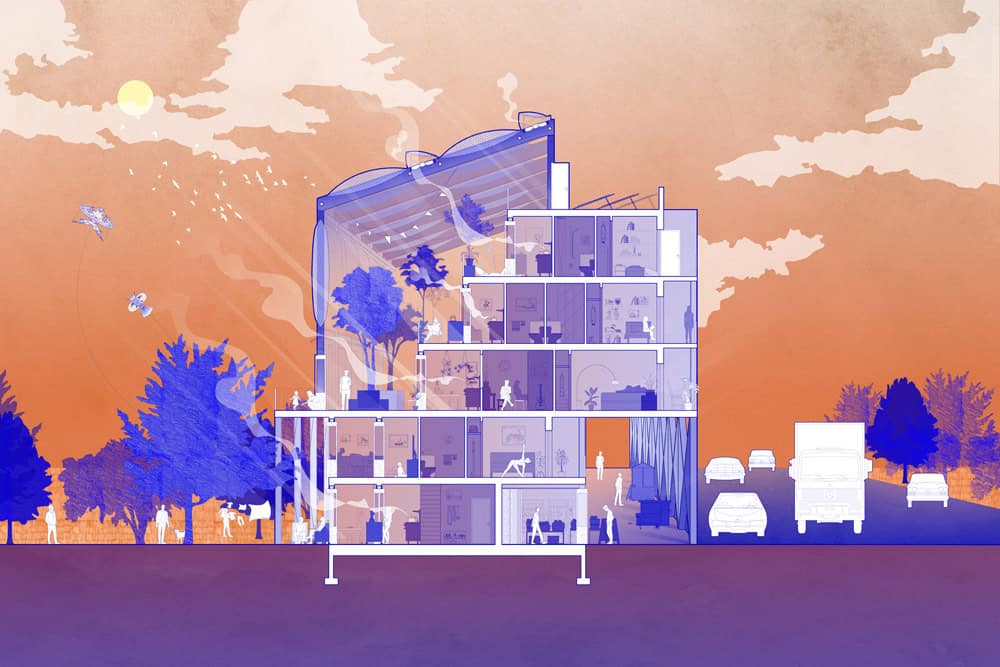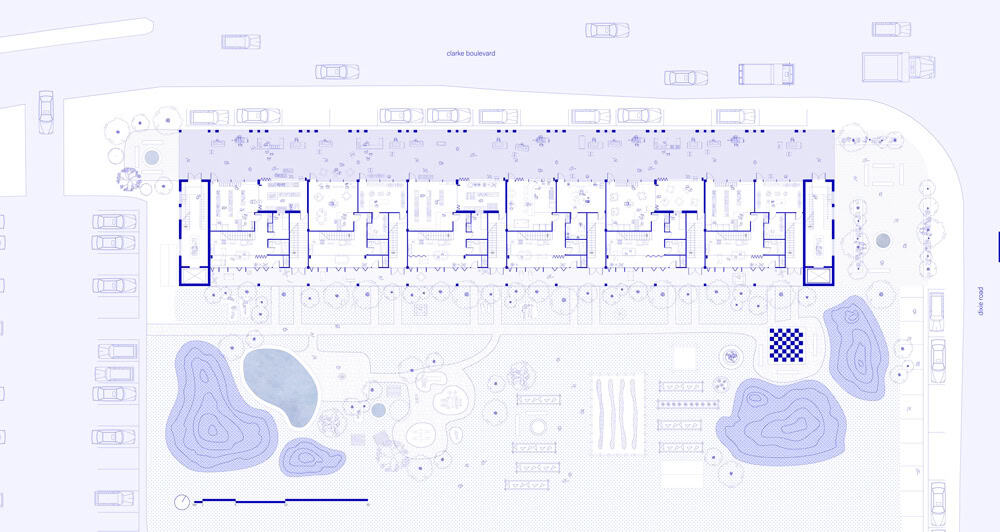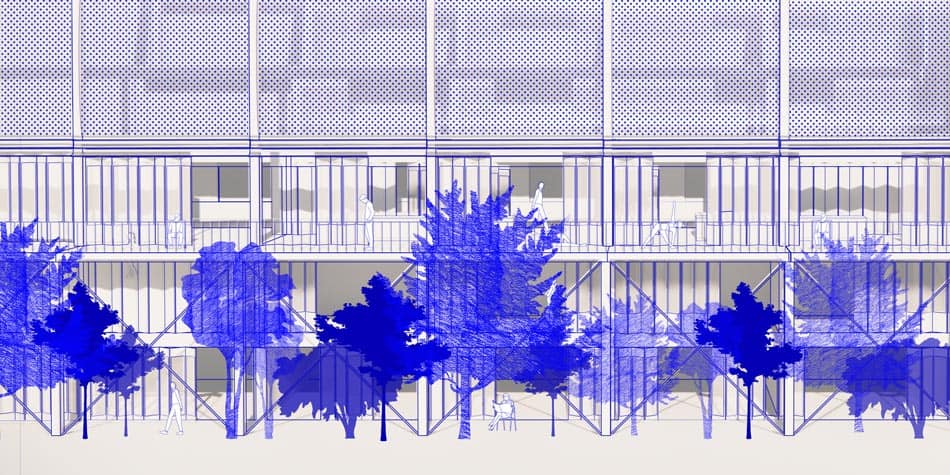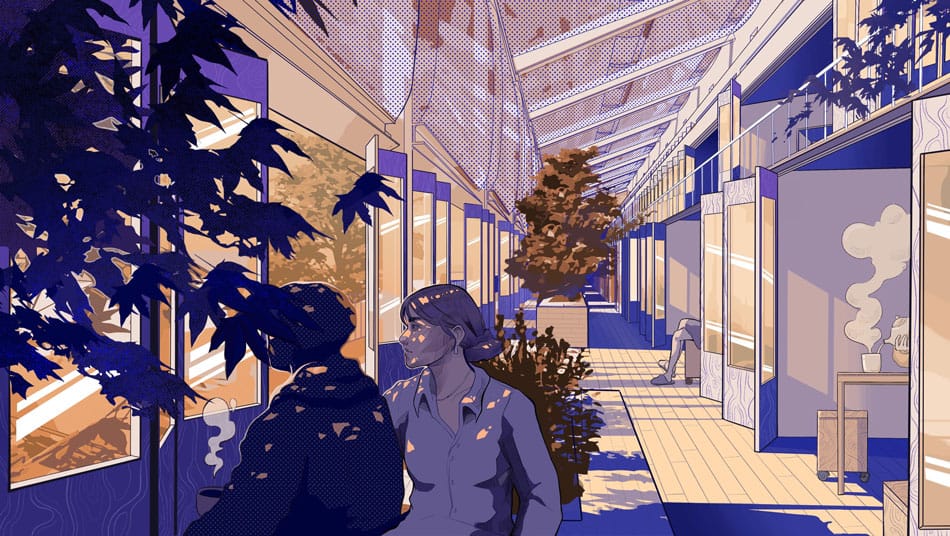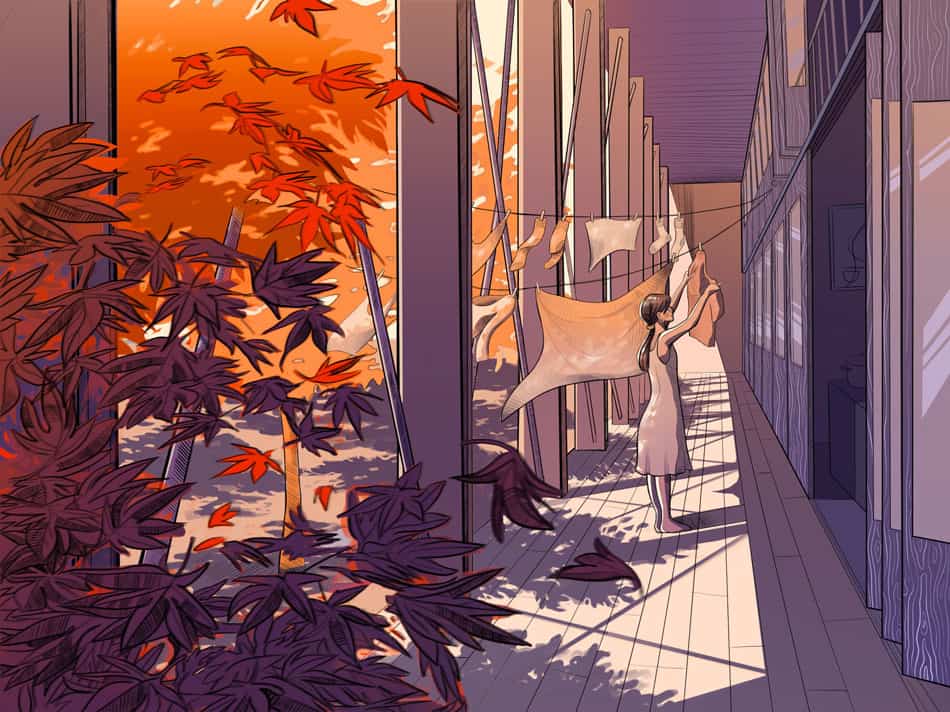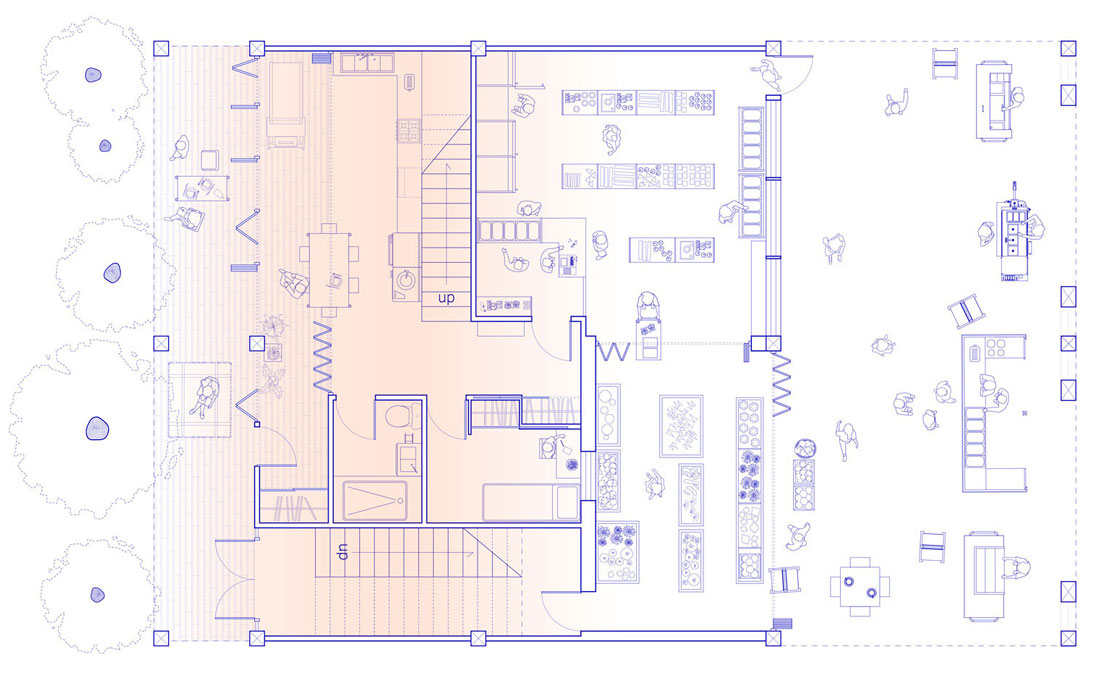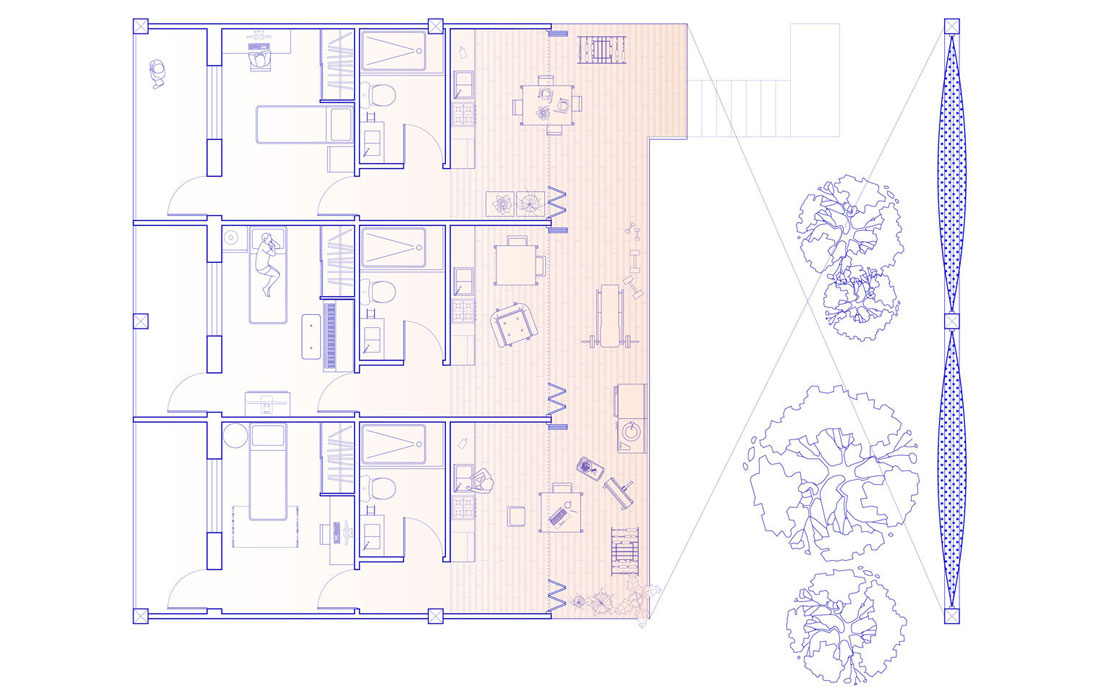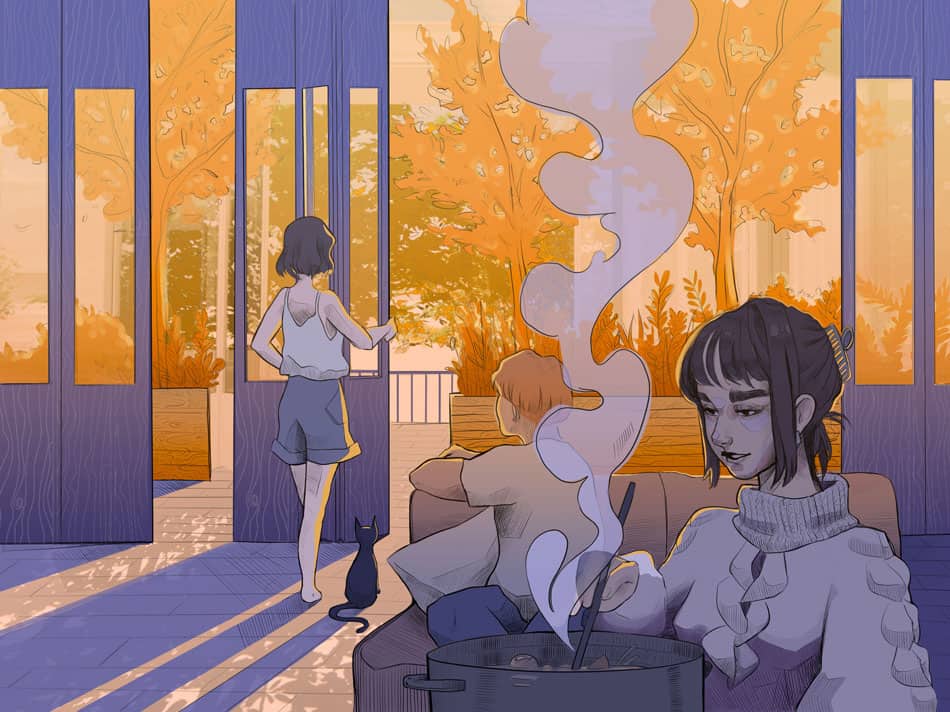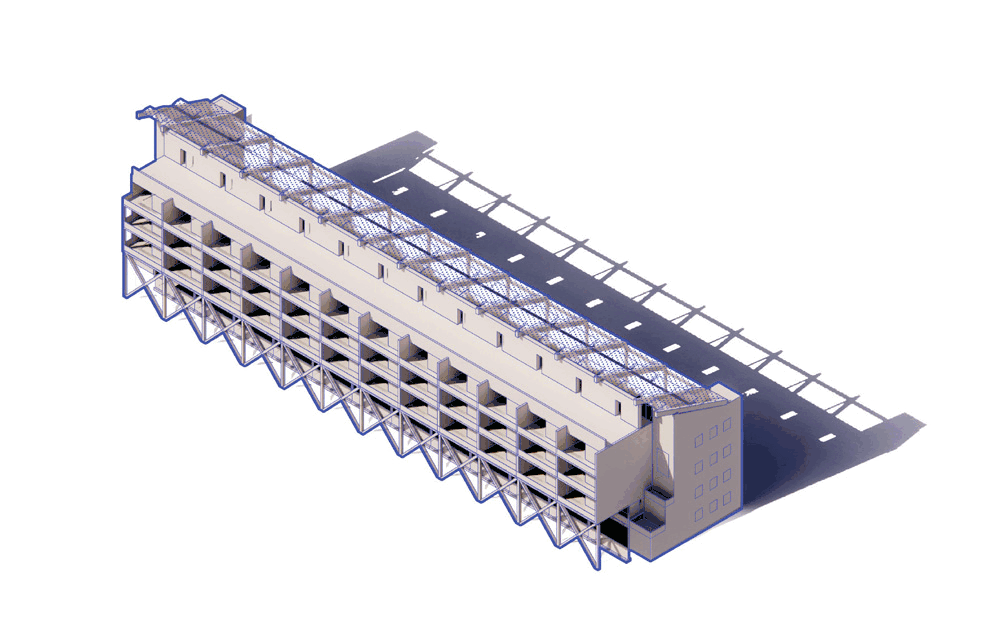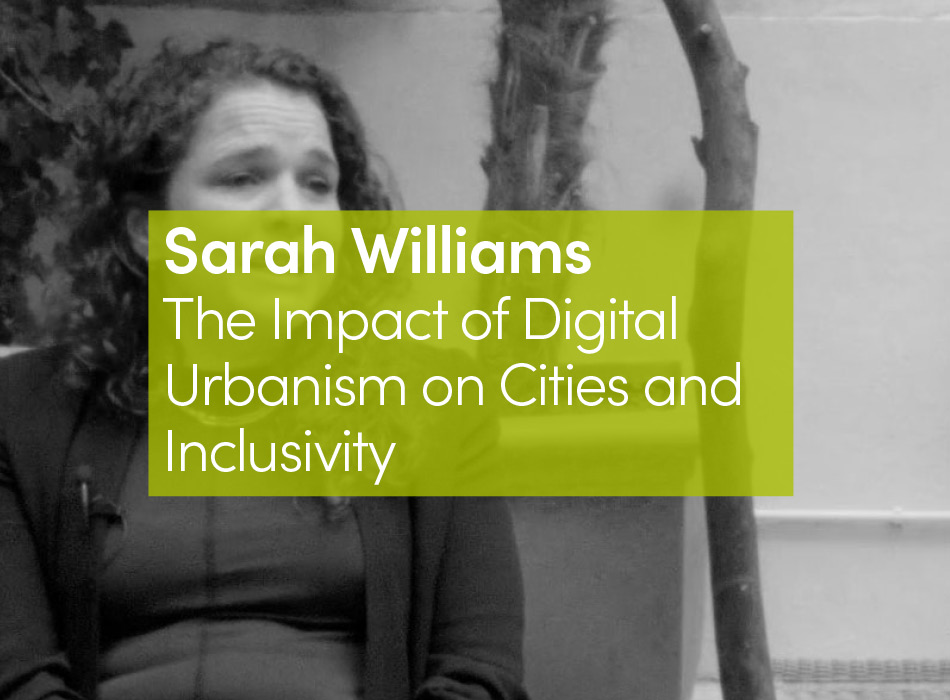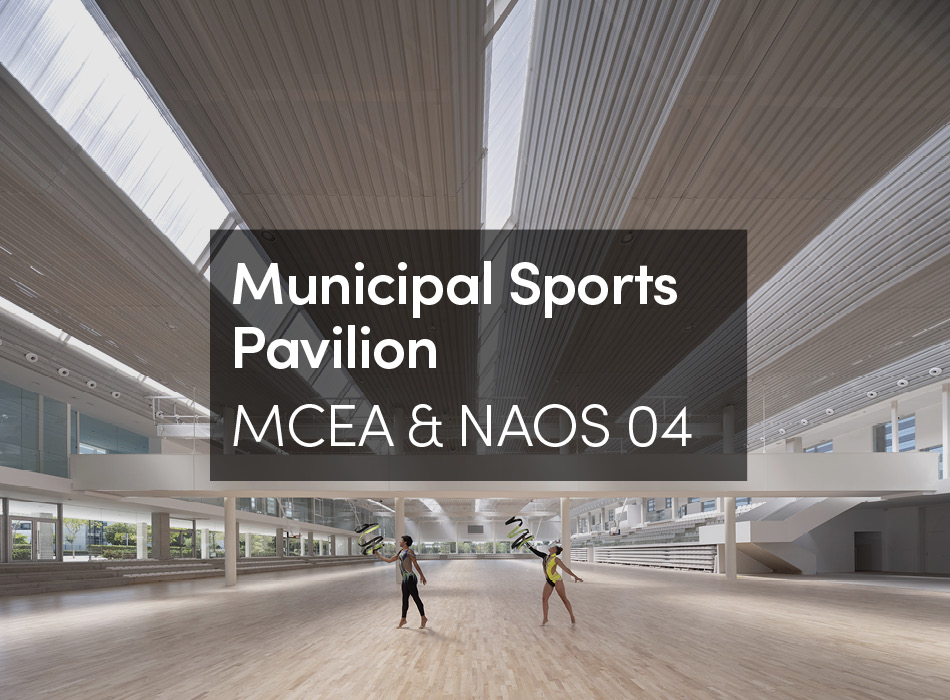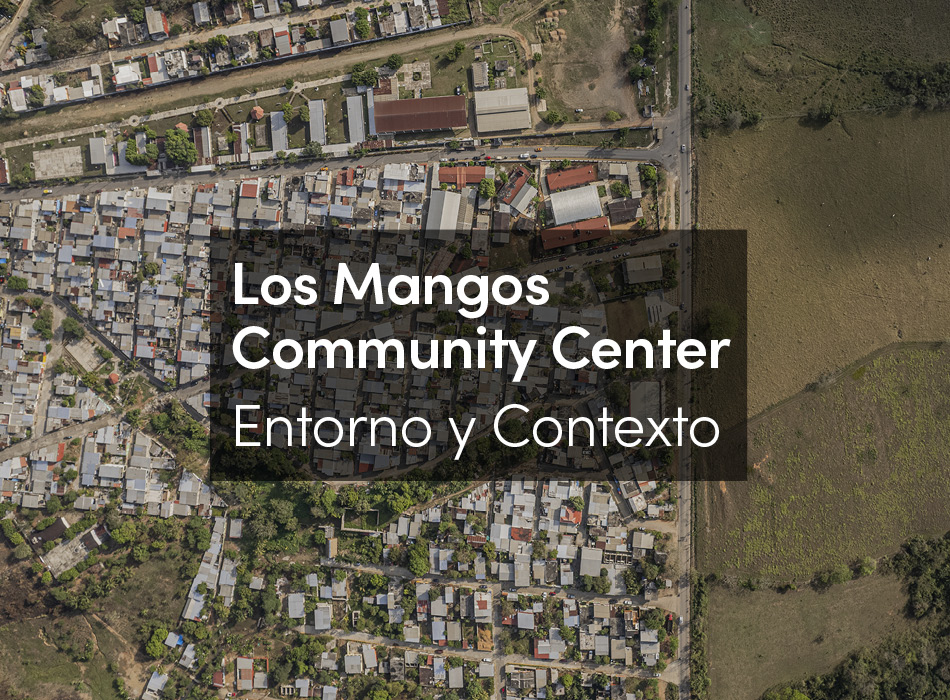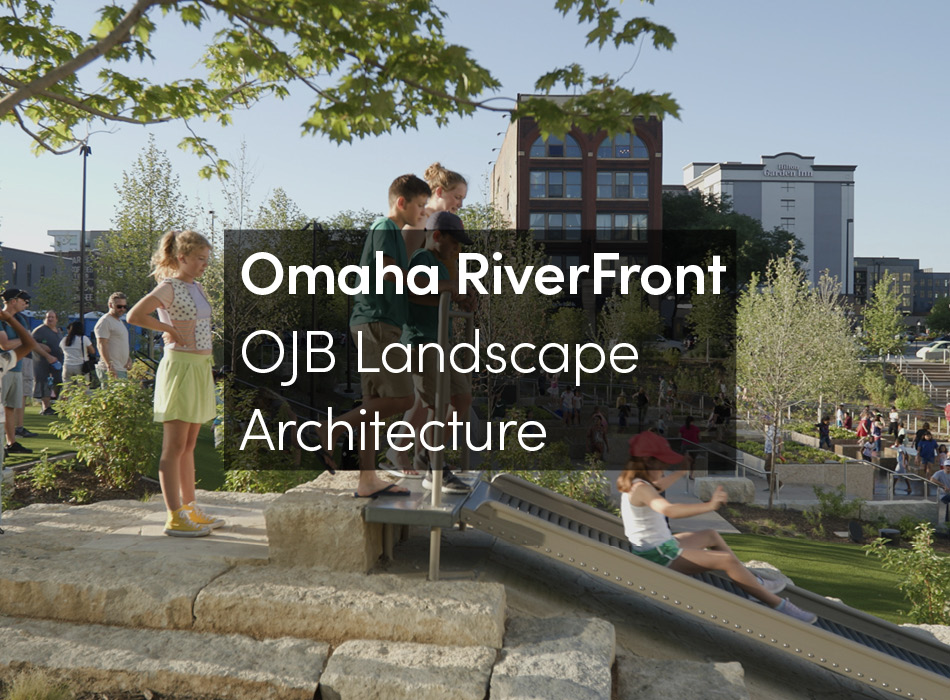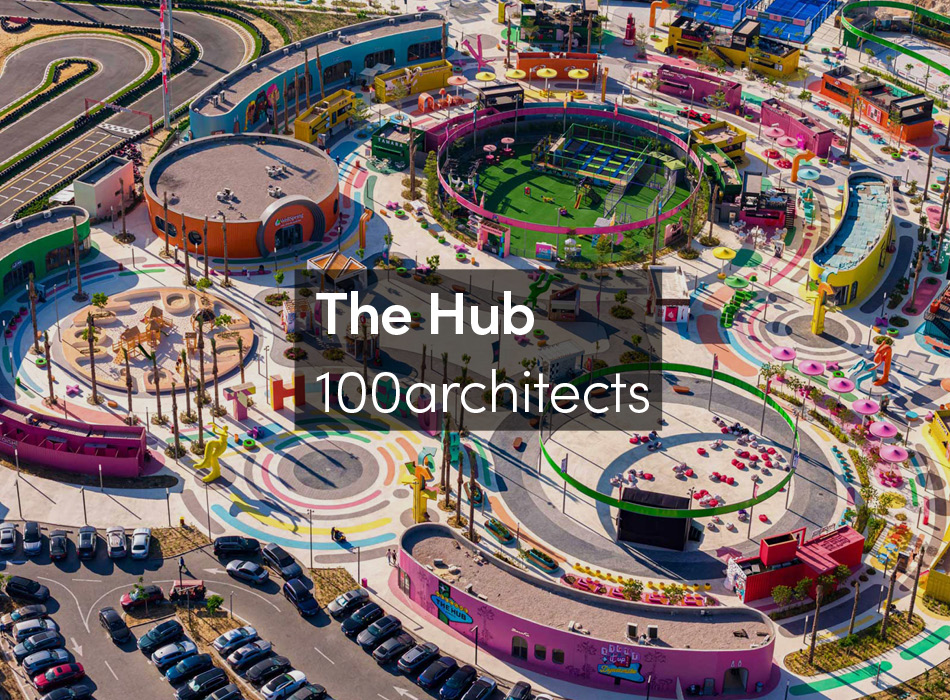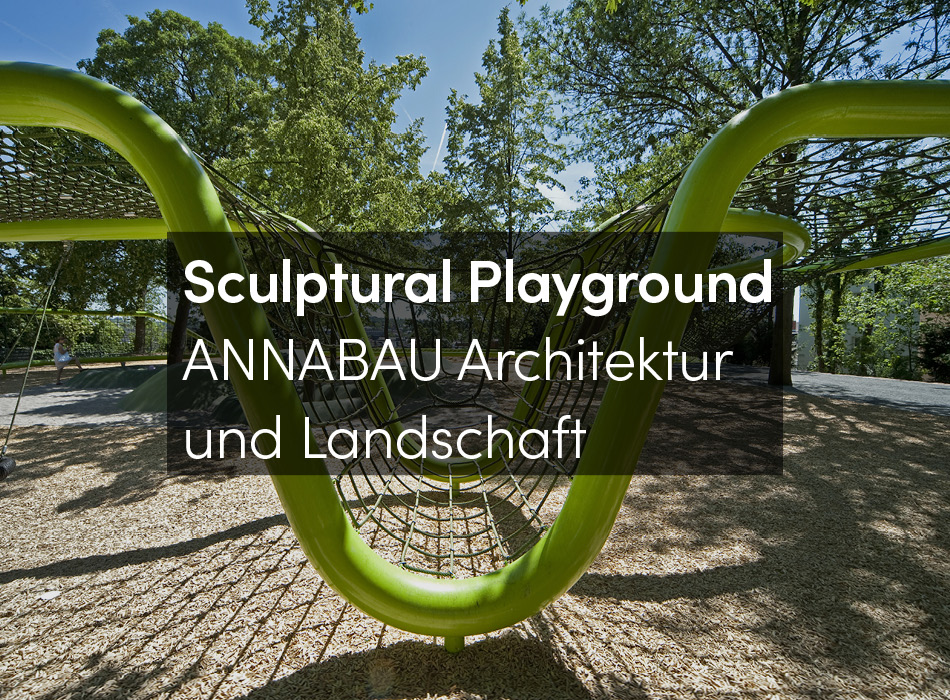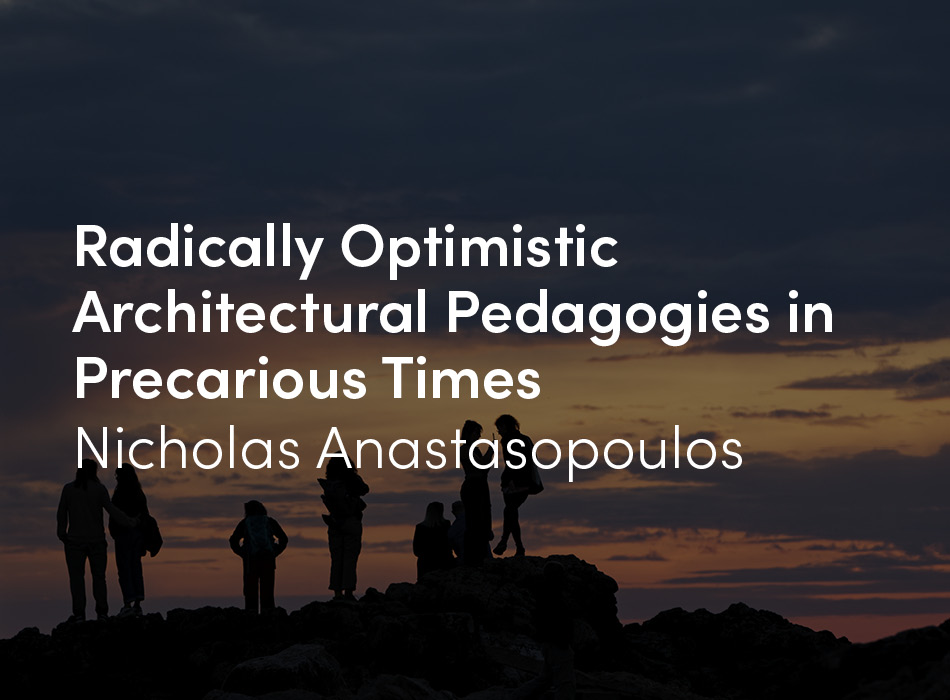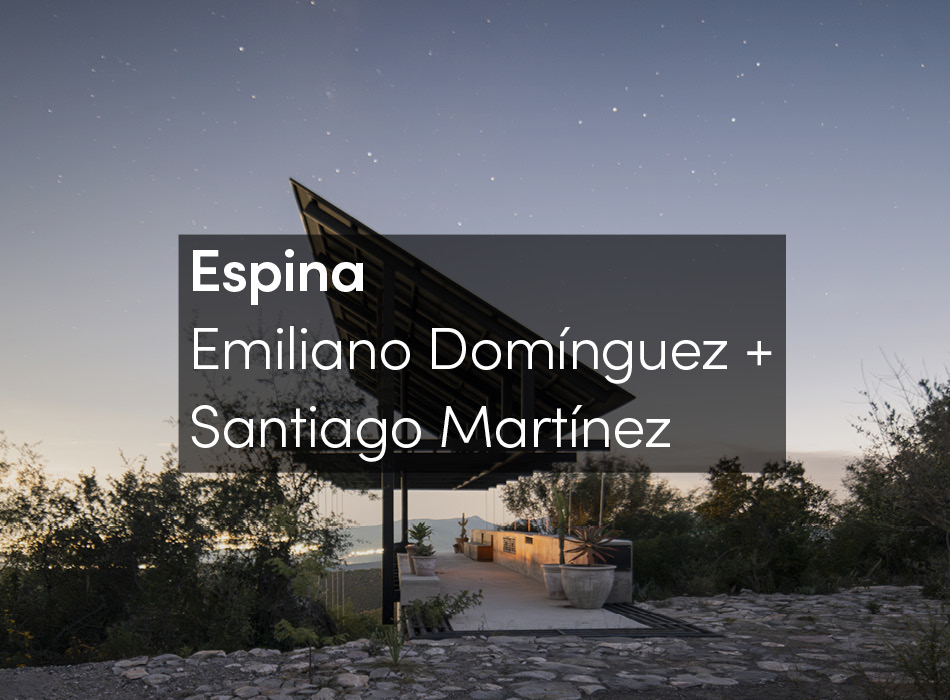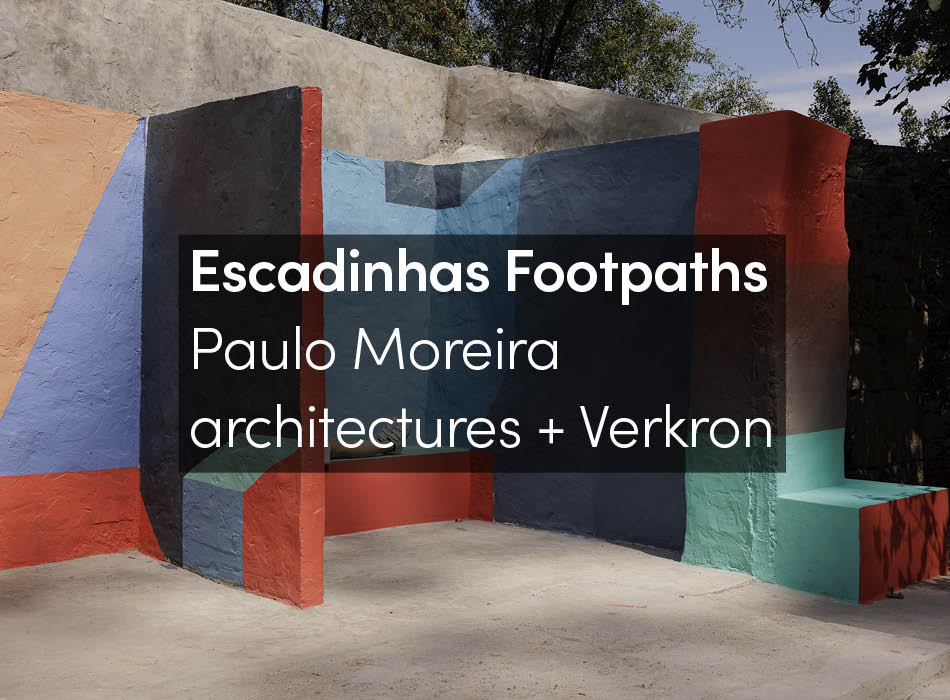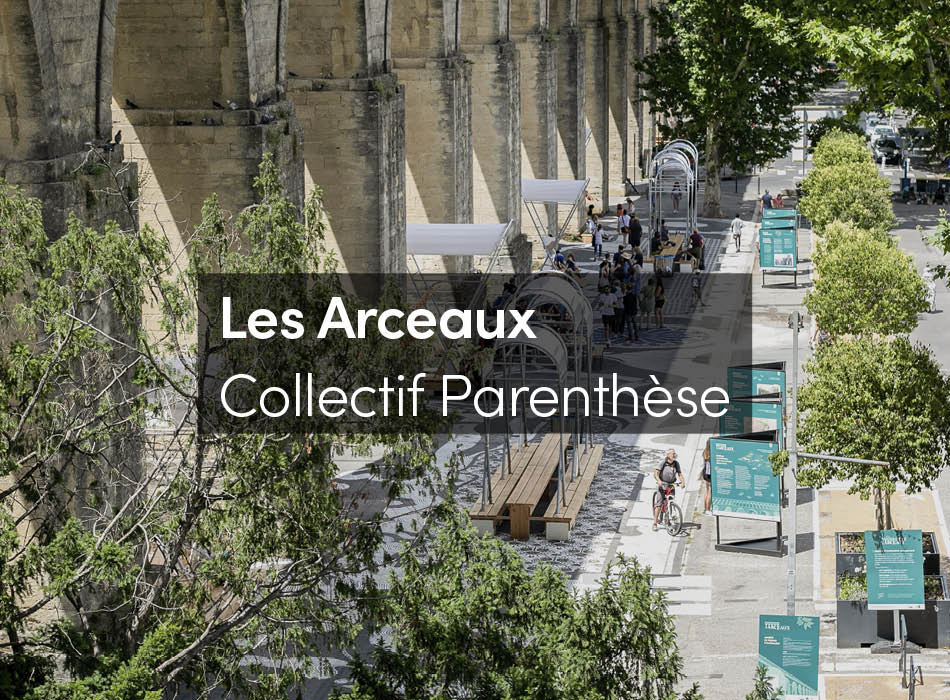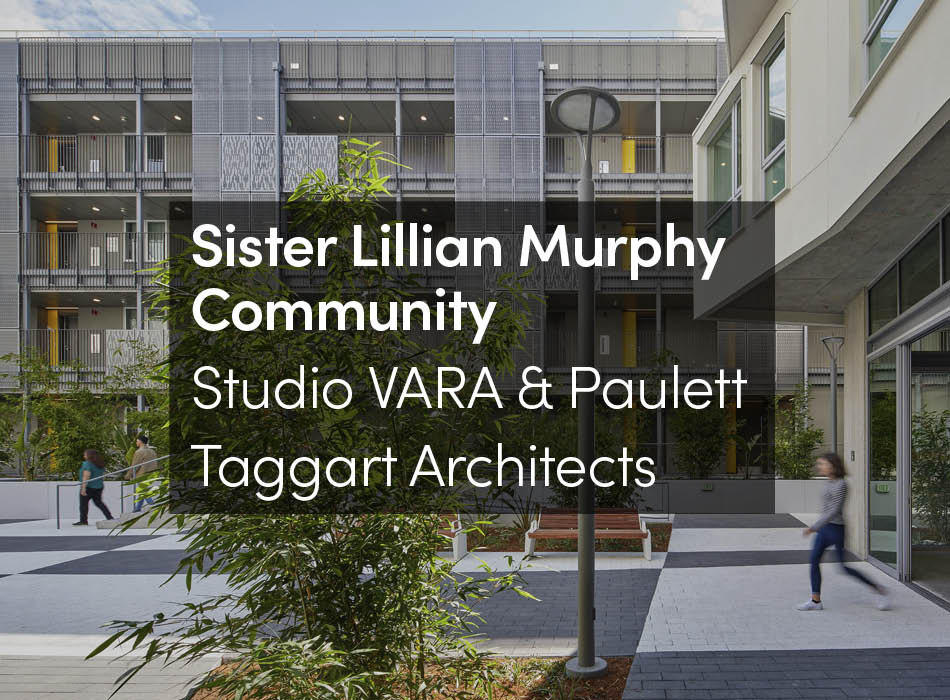“Solar Steps” is a proposed affordable residence featuring a triple-story ETFE greenhouse atrium that explores how threshold materiality and operability could create new forms of collective living that empower residents to engage in the making of their own spaces. Sited in Brampton, Ontario, the project was created for a third-year design studio led by professor Adrian Blackwell at the University of Waterloo entitled “Humans are more important than real estate”.
The design concept layers a series of architectural thresholds to redefine the relationships between interior and exterior climates, and between domestic and public programs. By varying circulatory, visual, and auditory porosity, the operable partitions, connections, openings, and other architectural interventions grant spatial agency to residents.
The triple-height greenhouse structure covers a shared terrace on the private side of the building, which becomes a semi-public, semi-exterior mediator in addition to being a climate strategy. While occupants remain protected from wind and precipitation, sunlight filtering in through the translucent high ceiling evokes the outdoors in a space that is comfortable and habitable year-round.
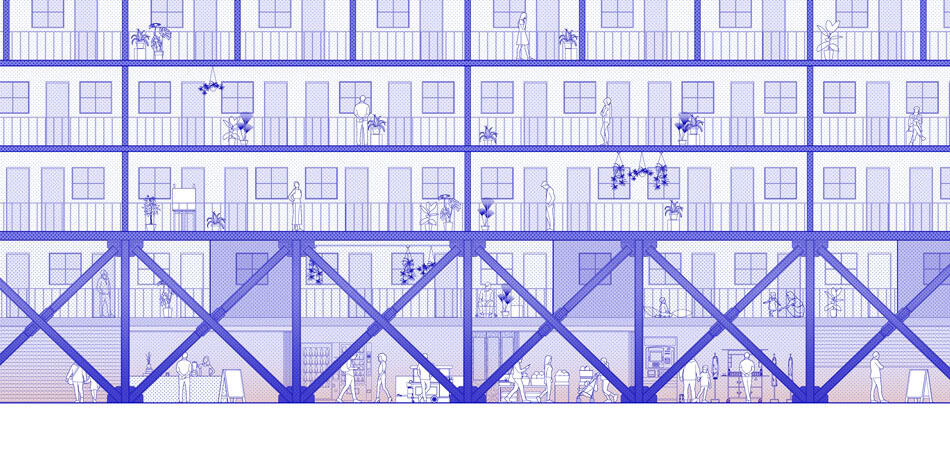 Deciduous interior plantings add to the seasonal dynamic, while traces of resident activity, including furniture, clotheslines, bikes, easels, and other personal belongings populate the edge of the terrace and strengthen the community-made social atmosphere. These qualities of comfort and accessibility draw out and concentrate resident activity under the greenhouse terrace. The result is a new shared living condition that encourages conversations and interactions between neighbors.
Deciduous interior plantings add to the seasonal dynamic, while traces of resident activity, including furniture, clotheslines, bikes, easels, and other personal belongings populate the edge of the terrace and strengthen the community-made social atmosphere. These qualities of comfort and accessibility draw out and concentrate resident activity under the greenhouse terrace. The result is a new shared living condition that encourages conversations and interactions between neighbors.
As a result of the layered scheme, residents regularly interact with or across threshold elements to adapt the spaces in between to changing programmatic needs. Operable bi-fold doors allow the greenhouse condition to bleed past the entrance boundaries of each unit’s south face to merge with each private living quarter when desired. Sliding doors, sliding walls, and operable wall openings within the units likewise divide and merge spaces to accommodate large gatherings or quiet study zones as needed for diverse housing situations, including multi-generational families and cohousing groups.
The street-facing arcade of Solar Steps joins the residence to the urban context through its sheltering structure and commercial program. Storefront space attached to first-floor units gives residents direct access to small business opportunities. Oncoming pedestrians, drawn to both the commercial activity and shelter from weather and traffic, animate the arcade into a lively marketplace whose accessibility and atmosphere become the foundations of a new gathering center for the broader urban community.
Through a layering of thresholds and inhabited intermediary spaces, the individual residents’ relationships to their neighbors and to the broader community become both more connected and more flexible. Agency over where and how to draw the boundary between personal and community space is given to the residents themselves.
